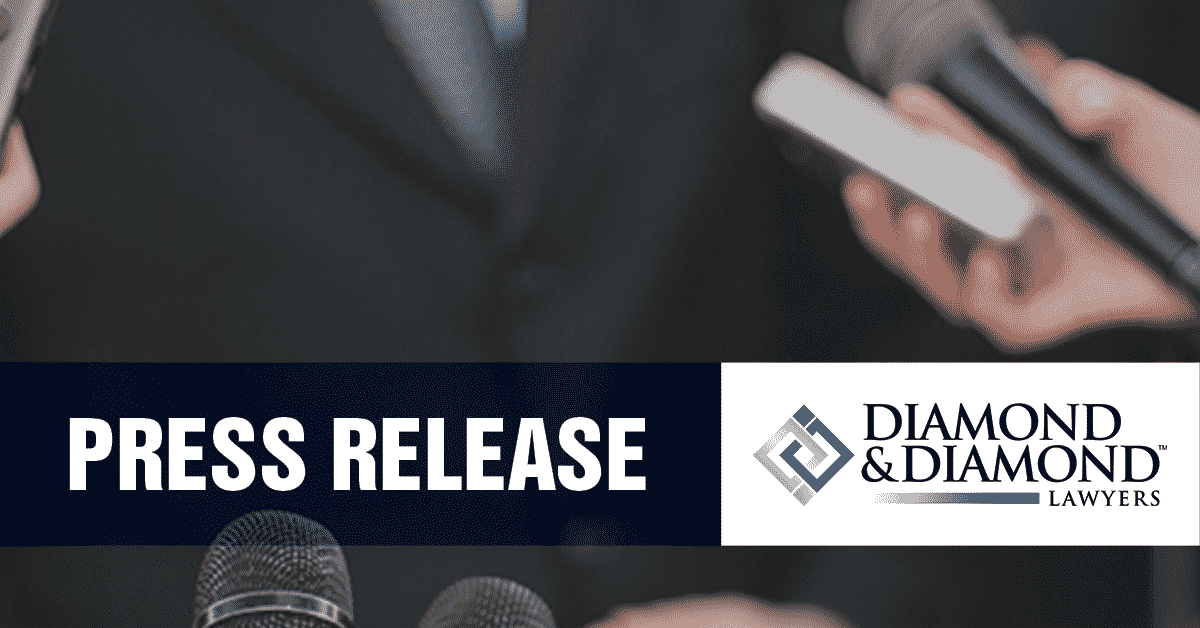
The most immediate concerns after a car accident are your health and your legal obligations.
First, you should be evaluated by a physician for any injuries. Not all car accident injuries are obvious. Brain injuries can be essential invisible, and other conditions may not show symptoms for hours or days after a car accident due to adrenaline and shock.
Next, you want to collect as much information about the accident as possible. Get all relevant information such as license plate numbers, names, locations, insurance providers, and other details and organize it. If there were any witnesses present at the scene,…

Buyers can contact the legislation agency for free of charge to study extra about recovering their losses
LOS ANGELES, June 29, 2022 (GLOBE NEWSWIRE) — The Portnoy Regulation Agency advises IonQ, Inc. (“IonQ” or “the Firm”) (NYSE: IONQ) traders {that a} class motion filed on behalf of traders. IonQ traders who misplaced cash on their funding are inspired to contact Lesley Portnoy, Esq.
Buyers are inspired to contact lawyer Lesley F. Portnoy, by telephone 844-767-8529 or e mail:
[email protected], to debate their authorized rights, or click on right here to hitch the case by way of www.portnoylaw.com. The Portnoy Regulation…

Yearly since 2009, the United State Division of Justice (“DOJ”) has revealed a report that particulars the actions the DOJ has taken to implement Title IV of the Prioritizing Assets and Group for Mental Property Act of 2008 (“PRO IP Act”) . The PRO IP Act stories additionally summarizes efforts, actions, and assets that the DOJ has allotted for mental property enforcement. There at the moment are a dozen PRO IP Act stories out there on the DOJ’s web site, they usually supply helpful insights into how the DOJ prioritizes the enforcement of mental property rights and the prosecution of…

The Defend Commerce Secrets and techniques Act (DTSA) was enacted in 2016. The DTSA permits an proprietor of a commerce secret to sue in federal courtroom when in search of reduction for commerce secret misappropriation associated to a services or products in interstate or overseas commerce, and doesn’t preempt any state regulation. A aim of the DTSA is to “present a single, nationwide commonplace for commerce secret misappropriation with clear guidelines and predictability for everybody concerned.” S. Rep. No. 114-220, at 14 (2016). For almost all of the time, this aim is upheld. Other than establishing a relation to a…

NEW YORK, June 29, 2022 (GLOBE NEWSWIRE) — WHY: Rosen Regulation Agency, a worldwide investor rights legislation agency, reminds purchasers of the securities of First Excessive-Faculty Schooling Group Co., Ltd. (NYSE: FHS) pursuant and/or traceable to the registration assertion and prospectus (collectively, the “Registration Assertion”) issued in reference to the Firm’s March 2021 preliminary public providing (“IPO” or the “Providing”) of the essential July 11, 2022 lead plaintiff deadline.
SO WHAT: When you bought First Excessive-Faculty Schooling Group securities pursuant and/or traceable to the Registration Assertion, you might be entitled to compensation with out fee of any out of pocket…

In Seyfarth’s third installment in the 2023 Trade Secrets Webinar Series providing valuable insights into navigating this evolving landscape, Seyfarth attorneys covered a range of topics, including the latest technology threats, the importance of communication and training, revisiting confidentiality policies, alternative trade secret protections, and updating restrictive covenant agreements. Here are the key takeaways from the Seyfarth webinar:Staying Informed about Technology Threats: Employers must stay up to date with the latest technology employees can use to misappropriate sensitive data. This includes being aware of potential tools and methods that could compromise trade secrets. Equally important is keeping abreast of…

As we previously reported, Minnesota will soon become only the fourth state (along with California, Oklahoma and North Dakota) to ban non-competitors.
The state’s new law renders void and unenforceable all covenants not to compete entered by employees or independent contractors on or after July 1, 2023. The only exceptions are noncompetitive agreements relating to the sale or dissolution of a business.A “covenant not to compete” is defined in the statute to exclude non-disclosure and non-solicitation provisions, and the law states that no other provisions in an agreement containing a non-compete shall be affected. The law also prohibits employers…

For the last decade, one of the biggest issues in the Illinois noncompete law has been what constitutes adequate consideration for a post-employment restrictive covenant, apart from employment lasting at least two years after the agreement was signed. The “24 month rule” set forth in Fifield v. Premier Dealer Services, Inc.2013 IL App (1st) 120327 has caused much head-scratching, and the Illinois legislature was essentially punted on the issue in the recent amendments to the Illinois Freedom to Work Act, 820 ILCS 90/1, et seq. (effective as of January 1, 2022). (Full disclosure: One of the authors of this post…








